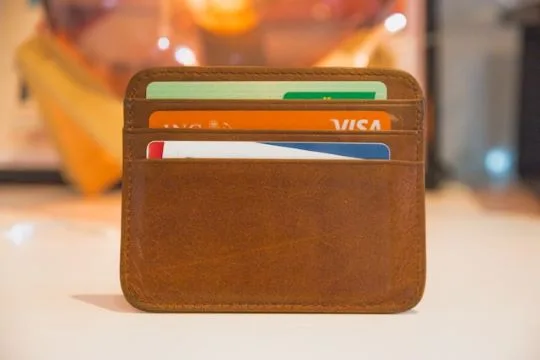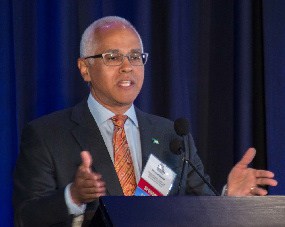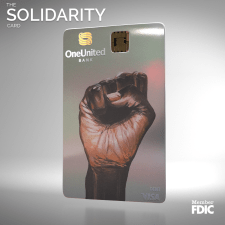No Banks Needed: 6 Insider Secrets to Secure Hard Money Loans for Real Estate

Traditionally, people borrowed money from banks to pay for property purchases. However, nowadays people are turning to alternative providers, i.e., private hard money lenders. Loans for real estate (or mortgages) can be a great way to get one’s foot on the property ladder. The average person has nowhere near enough money to pay for a house or apartment outright. This post will explore this topic in more detail and tell you about six insider secrets that you can use to secure hard money loans for real estate.
1. Researching Lenders
If you want to take out a loan, the first thing you need to do is research lenders. Most people’s first instinct upon making the decision to buy a house is to borrow money from a bank. Bank loans are the most traditional type of mortgage. However, banks set ridiculously high interest rates and are very unforgiving when it comes to missed payments. If you are interested in borrowing money, find hard money lenders as they will be able to give you much better deals. You can also get more favorable interest rates by borrowing from hard money lenders. If you are interested in this, always verify a lender is licensed and authorized to lend money. Under no circumstances should you blindly enter into a credit agreement with a lender until you’ve made sure they are genuine. Take time to read their reviews as well. A lender’s reviews can give you a lot of insight into what working with them will be like.
2. Terms and Conditions
Before taking out a loan, you need to take time to read the specific deal’s terms and conditions. On the final page of a loan application (just after approval), you will be given a list of terms and conditions. You are asked to read through these before finalizing your contract with the lender. Unfortunately, the average person doesn’t read them. Ignoring a loan contract’s terms and conditions can be a big mistake. The reason for this is that if there are any unfavorable caveats or clauses, you won’t be able to protect yourself from them. If you have no experience reading contracts and encounter any clauses you do not really understand, consider enlisting an attorney’s help. An attorney will be able to talk you through the basics of your loan contract and help you to understand anything you are unclear about.
3. Interest Rates
You always need to find out what a lender’s interest rates are before you borrow money from them. Many people make the mistake of taking loans out without educating themselves about interest rates first. Interest rates dictate the amount of money you will repay on your loan. For example, if you borrow $400,000 for a period of 10 years and repay 5% per year, you will repay a total amount of $600,054.79. This means you’ll repay $200,054.79 in interest. Try to find a lender with low interest rates. The lower a lender’s interest rates are, the less you will have to repay. As noted above, banks set ridiculously high interest rates. You can get much better deals going privately. That said, some private lenders also have ridiculous interest rates. Some lenders increase their interest rates periodically also. Try to find a fixed mortgage. A fixed mortgage means you’ll pay a fixed amount of interest for each year of your mortgage, rather than having to pay more and more every time interest rates are hiked.
4. Risks of Borrowing
You need to take some time to educate yourself on the risks of borrowing money. Not everybody does this before taking out loans. If you do not have enough money to repay your loan and miss repayments, you will default on your mortgage. A default is when a payment is missed and no effort to communicate with the lender has been made. Essentially, a default is when payment is withheld, and borrowers go completely dark. If your loan defaults, your house will be taken back by the lender, and you could end up having to file for bankruptcy. Defaults can also negatively impact your credit score. They will typically stay on your report for at least six years. In some countries, they stay on them for longer. Lenders are usually very flexible and easy to negotiate with as long as you get in touch before payments are missed.
5. Ability to Repay Loan
Before borrowing money, you need to take some time to make sure that you are in a good enough financial position to make repayments. Many lenders will just ask for some basic evidence of affordability, i.e., bank statements. However, if you know you might lose your job soon and still go ahead with a loan this is a very bad idea. In this situation, you will still be able to get a loan because lenders won’t have any idea your job is in jeopardy. Backing out of a mortgage after everything has been arranged is usually not possible without some kind of fee, fine, or penalty. Make sure that your job is stable, and that you are going to be able to make each repayment on time. Something else to think about is your deposit. Lenders are going to want you to put down a deposit if you are borrowing money from them.
6. Communicating Openly
If at any point during your loan period, you find yourself unable to make a repayment, get in touch with the lender and explain this to them; hard money lenders are usually a lot more flexible than banks are. Some even offer mortgage holidays, giving people who’re short on money a break on their repayments so that they can come up with the money they owe. Make sure that you find the best lender you can for this reason. The better a lender is, the more likely they are to work with you and help you make repayments on time rather than punishing you.
You don’t need a bank to borrow money for property purchases anymore. Instead, you can borrow from a hard money lender; hard money lenders are widely available and great businesses to work with. Always check that a lender is licensed before you work with them.





